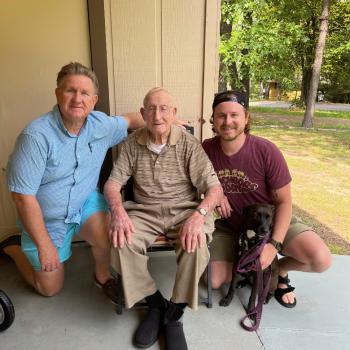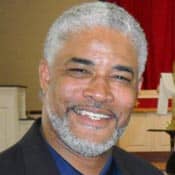 In her critically acclaimed memoir, The Prisoner's Wife, author asha bandele describes the myriad difficulties faced by the wives, lovers, and children of prison inmates during their loved ones' incarceration. Theirs, bandele writes, is a world of four-hour rides, on crowded buses, to visit relatives in faraway prisons; of indignities suffered at the hands of corrections officers; and of visits that could end abruptly if a child is deemed too loud.
In her critically acclaimed memoir, The Prisoner's Wife, author asha bandele describes the myriad difficulties faced by the wives, lovers, and children of prison inmates during their loved ones' incarceration. Theirs, bandele writes, is a world of four-hour rides, on crowded buses, to visit relatives in faraway prisons; of indignities suffered at the hands of corrections officers; and of visits that could end abruptly if a child is deemed too loud.
In a statement before the bi-partisan Commission on Safety and Abuse in America's Prisons, a project of the Vera Institute of Justice, bandele said, "We know that intact families are a strong contributing factor to prisoners successfully re-entering society. We know that children who are provided a measure of safety, security, and stability generally grow into productive, happy adults. The prison system, as I have experienced it, works completely to undermine both of these ideals."
That the criminal justice system does little to serve the needs of either prison inmates or their families—and thus contributes to its own crime statistics—is hardly news. The literature on the impact of incarceration on families is replete with studies mourning the repetitive criminality of the incarcerated and the sobering prospects for their children.
Consider this: In 1999, the U.S. Justice Department estimated that state and federal inmates were parents to nearly 1.5 million minor children. Today, the children of the incarcerated number approximately 2.5 million, roughly one child for every adult currently in jail or prison. Consider as well that the number of affected children balloons to approximately 12 million when one takes into account the total number of parents who are under the jurisdiction of the criminal justice system, including those who are on parole or probation. Finally, when one considers the effects of incarceration on the communities from which prisoners come—and to which they will return—the total number of children impacted by incarceration exceeds 20 million.
According to the National Council on Crime and Delinquency (NCCD), the children of incarcerated adults are five to six times more likely to go to jail or prison than the children of non-incarcerated adults. Such children, as criminologist and former White House advisor John DiIulio has noted, are the "most at-risk children in America."
As a former prison chaplain who spent more than thirteen years pastoring prison inmates and their families, let me offer a few vignettes that give a picture of what I've seen:
· I once married a couple whose son had been conceived in prison—yes, it does happen—about twelve years before. This young man was about 11 years old and had never spent even one night at home with his father because his father had been incarcerated literally all his life. When the wedding ceremony, which took place in the prison chapel, was over, the boy asked his father, "Will you be able to come home now, Daddy?" It was as if the boy had reasoned that his father's continued incarceration was due to his failure to marry the boy's mother.
· I supervised (but didn't perform) another wedding in which the couple had had several children prior to the man's incarceration, but they had never gotten married. As a result of his crime—a murder—he was given a life sentence; the mother of his children, who considered them married, in her words, "from the beginning," spent the next twenty-six years visiting him in prison, raising their children and helping with the grandchildren who eventually came along. In short, she served as the matriarch of that clan. She was a beautiful, dignified woman who reared her family by the sheer force of her considerable will. On their wedding day, the sight of three generations of that family gathered together—again, in the prison chapel—was overwhelming. One of my seminary interns, a former gang member who was himself reared without his father, fled the room in tears because the scene was so beautiful.
· At the request of one of the inmate members of my church council, I once brokered a meeting between this inmate and his younger brother who was incarcerated in the same prison. The older inmate, who I believe was in his late 20s or early 30s, had been the patriarchal figure in a fatherless home that included his mother and several younger siblings. He was also the head of a criminal enterprise that included virtually the entire family. Upon being charged with his crimes, he took the weight for the entire family and drew an exceedingly long prison sentence. But, in the course of his incarceration, the lack of his presence in the home and on the street brought additional hardship on the family, which led his younger brother to become even more immersed in what is commonly called "the game." The purpose of the meeting, which again took place in the prison chapel, was to facilitate a reconciliation between the two brothers. This reconciliation was necessary because the younger brother's abandonment issues had caused him to "act out" in ways that could have gotten him killed by other inmates.





